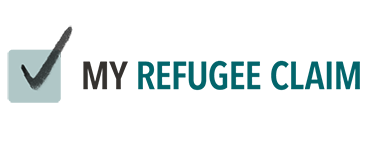Refugee hearings are private and are not open to members of the public. Only certain people can be at your refugee hearing:
The IRB-RPD Member
The decision-maker in your hearing is called the Member. A Member of the IRB-RPD runs the hearing and decides to accept or reject your claim. The Member is expected to treat you with respect and care. The Member reads your BOC Form and looks at all your evidence before and at the hearing. They ask you questions during your hearing to help them make a decision on your refugee claim.
Legal representative
Your legal representative might be a lawyer, an immigration consultant, or a representative without fee. In Quebec, a notary public, or in Ontario, a paralegal may be able to represent you.
While the Member is asking you questions in the hearing, your legal representative can explain things to you. Your legal representative cannot answer questions for you. You must be prepared to answer the Member yourself. Your legal representative will have the chance to ask you questions, but usually they must wait to ask questions until after the Member is finished.
At the end of your hearing, your legal representative may provide a summary of your claim to the Member. This is called submissions. Submissions can be told to the Member at the hearing, or they can be written by your legal representative and sent to the IRB-RPD after your hearing.
Minister’s Counsel
The Minister’s Counsel is an employee of either the CBSA or IRCC. The Minister’s Counsel is not involved in everyone’s refugee claim. They will become involved if they want to oppose your refugee claim. If a Minister’s Counsel is involved, it is because they have concerns:
- about who you are or about your documents,
- that you are not telling the truth,
- that you are a criminal or in a terrorist organization.
You will know if the Minster’s Counsel is going to be involved in your claim. Before the hearing, the Minister’s Counsel must send you or your legal representative a Notice of Intervention. In the notice, they explain how and why they are involved. The notice will say whether they will come to your hearing or if they will just send documents. You should get the notice at least ten days or more before your hearing. Read it carefully and be prepared to speak about it. If a Minister’s Counsel is at your hearing, they will likely ask you questions.
Interpreter
The role of the interpreter is to make sure that everyone understands each other clearly. Even if you understand English or French, it is a good idea to have an interpreter to avoid mistakes. IRB interpreters do not share information about you or your claim with anyone outside of the hearing room.
The IRB-RPD will get you a free professional interpreter in your language and dialect. If you did not say that you wanted an interpreter in your BOC form, you can still ask for one. Write to the IRB-RPD ten days or more before your hearing to ask for one.
Witnesses
You can have witnesses at your hearing to speak about your claim. A witness is a person who is able to confirm what happened to you. They can be in Canada or in another country. A witness can also be an expert about issues related to your refugee claim.
Choose your witnesses carefully with the help of your legal representative. Make sure to prepare them before your hearing. Let your witnesses know that what they say must be true.
If you would like to invite a witness to your hearing, you or your legal representative must write to the IRB-RPD (and Minister’s Counsel if necessary) ten days or more before the hearing. Give them:
- The name of your witness
- A short statement about why they are speaking
- Your relationship to the witness
- How long you think they will speak
Observers
You can invite one or more observers to your refugee hearing for emotional support. This could be a friend, a relative, or a member of your community.
At your hearing, the Member asks observers to say who they are. But observers are not allowed to speak and must be quiet during the hearing. They cannot also be a witness.
Your children 18 years or younger
Children under 18 years old do not have to go to the refugee hearing unless the Member asks them to. For a virtual (online) video hearing, try to have someone care for your young children away from where you are. You may be talking about events that are upsetting. These are things you may not want your children hearing. If possible, have your children go to school or stay with a relative or friend, or arrange childcare for them.
Designated Representative
The IRB-RPD names a Designated Representative to represent minor children or adults who cannot understand the refugee process. The Designated Representative helps the person to understand what is happening and supports them to put forward the best case possible. The Designated Representative may be asked questions during the hearing. The IRB-RPD usually chooses a parent as the Designated Representative when a child’s claim is joined with their parent’s claim.
